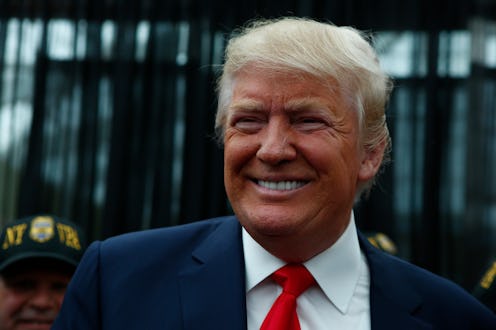News
The Primaries Are In The Home Stretch Now
The New York primary is over and done with. Donald Trump and Hillary Clinton were the big winners, scoring resounding victories over Ted Cruz, Bernie Sanders and John Kasich. Now, all eyes are on the few states that haven't yet voted in the primary, because they may well be the ones that determine the eventual nominee. For delegate nerds (like myself), that raises the question: How many delegates are left after New York?
The two parties both have different total numbers of delegates, so there are two answers to that question. In the Republican primary, there are 620 pledged delegates remaining after New York. That's around 26 percent of the entire GOP delegate pool. Meanwhile, there are still 1,400 delegates up for grabs in the Democratic primary, which comes to about 35 percent of all pledged Democratic delegates.
A few small caveats are in order. Most importantly, the Democratic numbers above don't include superdelegates in any of the totals. This is because superdelegates get to vote for whomever they want regardless of their state's primary, so it wouldn't make sense to talk about how many are "left" after New York. Likewise, a small percentage of Republican delegates — most notably those from North Dakota and Pennsylvania — aren't bound or pledged to any candidate, and so they're excluded from the GOP totals.
So, as far as pledged delegates go, about a quarter on the Republican side and over a third on the Democratic side remain unallocated. It might be more helpful, though, to look at this from the opposite angle: In both parties, the majority of delegates have already been awarded. And that's important to keep in mind, because it means candidates who trail in delegates don't have all that many opportunities to close the gap. Ted Cruz, for example, no longer has a mathematical path to winning the nomination outright thanks to his crushing defeat in New York.
The next states to vote are a group of northeastern states: Delaware, Pennsylvania, Maryland, Rhode Island, and Connecticut. But one of the most important upcoming states is California, and it also happens to be worth more delegates than anywhere else in the country. When Golden State voters head to the polls on June 7, Democrats will be competing for 475 pledged delegates and Republicans for 172.
If the delegate count continues to be as breathtakingly close as it is now, we may not have a nominee in either party until June 8 — and if either of the conventions are contested, we'll have to wait a lot longer than that.
